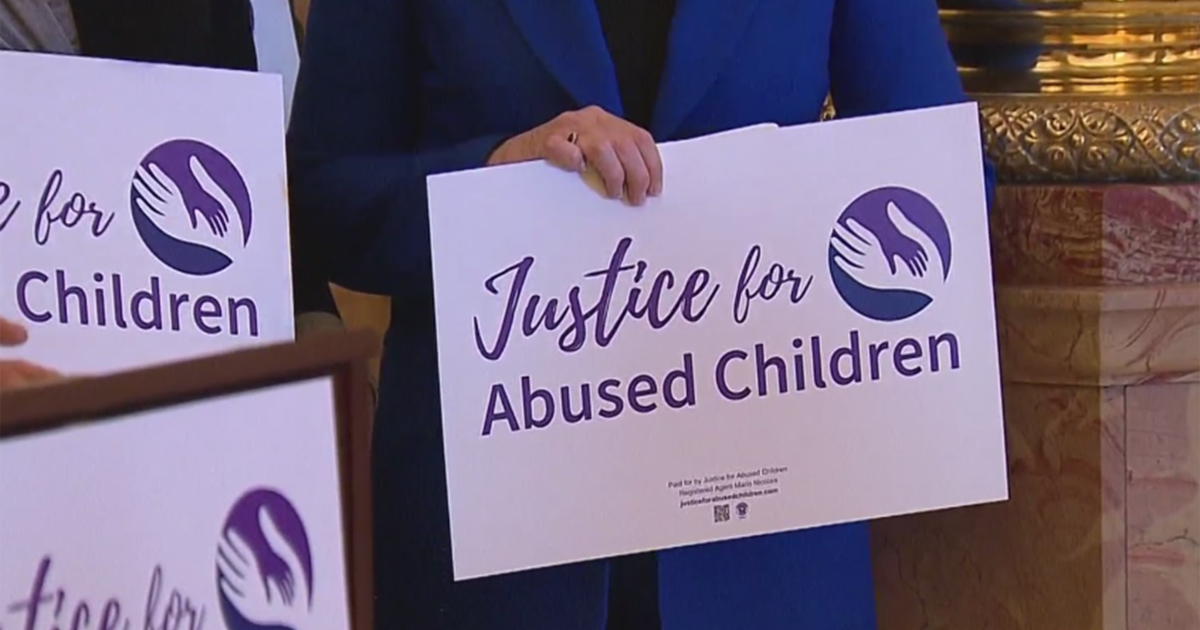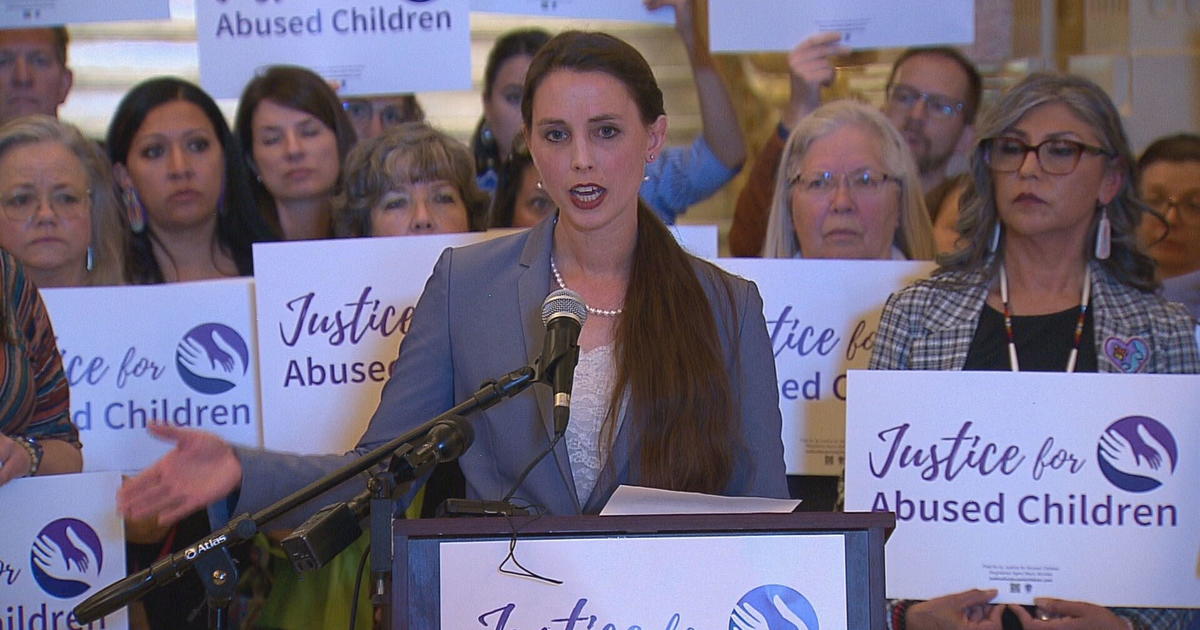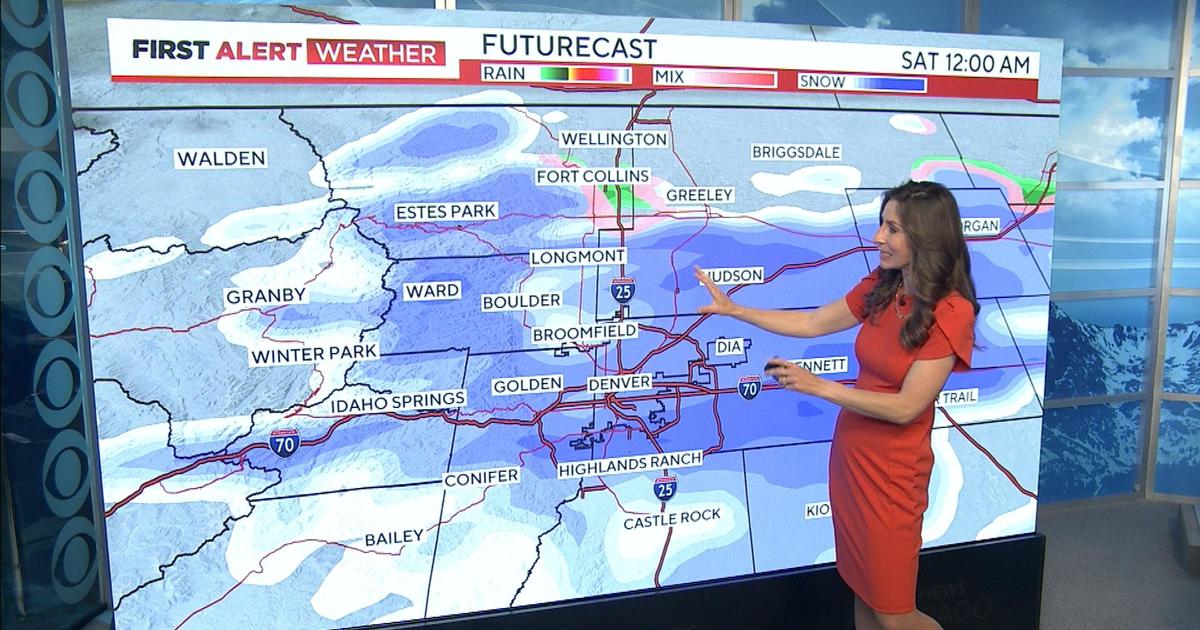Illegal Immigrant Tuition Bill Fails In Colorado
DENVER (AP) - Colorado Republicans rejected a measure to allow illegal immigrant students to attend state colleges at discounted tuition rates Wednesday, an outcome that prompted tears from youth in attendance and some lawmakers.
"I don't know what to say," teary-eyed Democratic Sen. Angela Giron told a group of youth outside the House committee room where the bill was shot down on a party-line vote. "I feel like we let you all down." Giron sponsored the bill in the Democratic-led Senate, where it passed this month.
The bill would've allowed students who graduated from Colorado high schools to qualify for a tuition rate lower than the out-of-state price, but slightly higher than the resident rate because they would not receive a state subsidy. Democrats argued illegal immigrant students deserve a chance to continue their education at an affordable rate because the state has spent money educating them in the K-12 system. The out-of-state rate is up to five times more expensive than the in-state rate.
If the measure passed, it could have impacted an estimated 500 illegal immigrant students the first year, about 0.20 percent of the enrollment at state public colleges. About 250,000 students are enrolled in state public higher-education institutions.
It would have been up to public colleges whether to participate in allowing students to attend at a discounted rate, and students would have been required to submit a signed affidavit stating that they were seeking, or planned to seek, legal status.
Thirteen states - including Texas, California, Illinois, Connecticut and Utah- have passed legislation granting in-state tuition for immigrant students, according to the National Conference of State Legislatures. The rates for illegal immigrant students who went to college in those states varied, with California and Texas having the largest participation. In both states, illegal immigrant students made up about 1 percent of the total student college enrollment, according to the NCSL.
In Utah, where enrollment is 174,000, about 630 illegal immigrant students attended college at the in-state tuition rate, according to the latest figures.
Republicans argue that a college degree won't fix the student's legal status and they'll have trouble finding jobs. Republican Rep. Brian DelGrosso, who chairs the committee that rejected the bill, said he understands the argument from supporters that the current system leaves illegal immigrant students hopeless. But the bill would set up families for a financial hardship later, he said.
"Once they're done with their education, they can't legally work here," he said. "And so to me, we're not stopping that feeling of hopelessness, we're instead prolonging it. We're putting families in a lot worse financial situation."
DelGrosso said the bill highlights the fact that college is expensive for everyone, not just illegal immigrants. He noted that he joined the military to help pay for his education. He said illegal immigrants can go to college now at the out-of-state rate, and that voting against the bill doesn't deny them the chance at a college education.
Democratic Rep. Crisanta Duran, who carried the bill in the House, did not buy that argument.
"Price does mean access. And they will concede that for Colorado kids, but they will not concede that for undocumented students. It's a double standard," Duran said.
Before the vote, she asked lawmakers to not "forget the history on which this country was founded on."
"Sometimes we have selective memory," she said.
This is the sixth time the Legislature has considered what type of tuition illegal immigrants should pay.
Under this year's bill, an illegal immigrant attending the University of Colorado at Boulder, for example, would pay about $9,500 annually, compared with an estimated $7,700 for Colorado residents and about $28,850 for non-Colorado residents.
Democratic Denver mayor Michael Hancock and former mayor Guillermo "Bill" Vidal supported the bill, and Vidal has testified in favor three times. Vidal, who was born in Cuba, was Denver's first foreign-born mayor.
"All they are guilty of is being innocent children who had no choice but to follow the role of their parents," Vidal said of the students.
Isaias Vasquez, 20, cried and hugged a friend after the vote.
"We thought we could do it," he said.
He said his family moved to Colorado from the Mexican state of Zacatecas when he was 11. He said he graduated last year and attended one semester at the Metropolitan State College of Denver but stopped going because he couldn't afford it. The out-of-state rate at the college is $15,690 for two full-time semesters.
He said he knows the vote doesn't deny him the opportunity to attend college, and that he's saving money to go back.
"It's not denying, but it's still an obstacle, which is very, very difficult to get through," he said.
(© Copyright 2012 The Associated Press. All Rights Reserved. This material may not be published, broadcast, rewritten or redistributed.)



